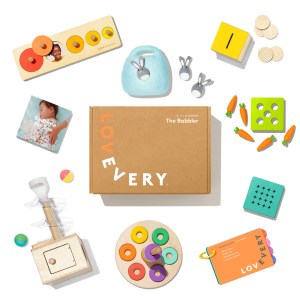8 ways toddlers start to talk between 18 and 24 months

Language development spans a wider range than you might think. Children develop in different ways and at different rates. Remember that your toddler may be working on developing several skills all at once—puzzles, running, jumping, climbing—and language can appear to take a back seat at times.
A lot will start to happen in the coming months.
By around age two, your toddler may start to talk by:
Speaking many more words
Between 15 and 18 months, toddlers start to use an average of about 10 to 15 words. Somewhere between 24 and 30 months, your toddler’s language will likely begin to explode, and they may have upwards of 50 words.
Understanding and following two-part directions

Your toddler will likely be able to do this between 18 and 24 months, but when you give two-part directions, focus on one kind of action: “give me the ball and give me your shoe” or “touch your nose and touch your belly.”
Beginning to use two-word phrases like “more water”
Between about 20 and 24 months, your toddler may start to put two words together to form phrases such as “no sleep” and “more water.” Beginning somewhere around 24 to 30 months, they may start to string three words together.
Imitating environmental sounds

By around 21 months, your toddler may start imitating the sounds of the world around them while they play, like animals, trucks, machines, and anything that makes noise.
Becoming more intelligible to you (about 65% of the time)
You may see a dramatic up tick in how much of your toddler’s language you understand as your toddler approaches two years (even if the casual observer may not be able to decipher it at all).
Using “jargon”
This is the (mostly) nonsensical self-talk your toddler does, when it sounds like they’re imitating speech (they are 🙂). With volume, tone, and inflection, they’re practising what it sounds like to have a real conversation.
Starting to use their first name
Try to encourage them to use their name by saying something like “who is my helper? Caroline’s my wonderful helper!” Being able to use their name will come sometime between 18 and 24 months—pronouns will come later. Learn more about pronouns here.
Singing a few words from a familiar song

Between 18 and 23 months, you may hear your toddler sing a couple of recognizable words from a song they know and repeat those same words over and over again in an off-key but musical way. Later—sometime between 23 and 27 months—your toddler may begin singing whole phrases of songs.
A reminder: toddlers who may not speak much (or intelligibly) are still constantly processing the language-rich environment they’re steeped in. So keep on speaking, narrating, reading, conversing, and singing. It all helps!
Note: If you do suspect a language delay, checking in with your paediatrician is always a good idea.

The Play Kits
The Play Kits by Lovevery are thoroughly tested, baby safe, eco-friendly and Montessori inspired. Give your child the best start with our stage-based play toy subscription boxes.
Learn morePosted in: 19 - 21 Months, Communication, Language, Milestones, Child Development
Keep reading

19 - 21 Months
22 - 24 Months
25 - 27 Months
28 - 30 Months
31 - 33 Months
34 - 36 Months
What kind of chores are right for my child?
Children as young as 18 months can start taking on regular household responsibilities. These will be simple and straightforward, like wiping up spills or helping set the table, and will require modeling and patience from you.


19 - 21 Months
Welcome to The Realist Play Kit for months 19-21
Watch Lovevery CEO Jessica Rolph introduce the Realist Play Kit for months 19 to 11 of your toddler's life.


19 - 21 Months
Introducing the Montessori Animal Match game to your toddler
Lovevery CEO Jessica Rolph and Montessori Expert Jody Malterre demonstrate how the Montessori Animal Match game helps toddlers link 2D images with 3D figurines.
